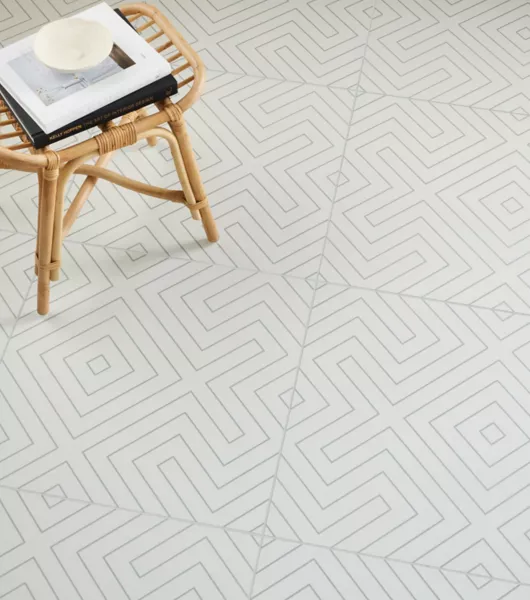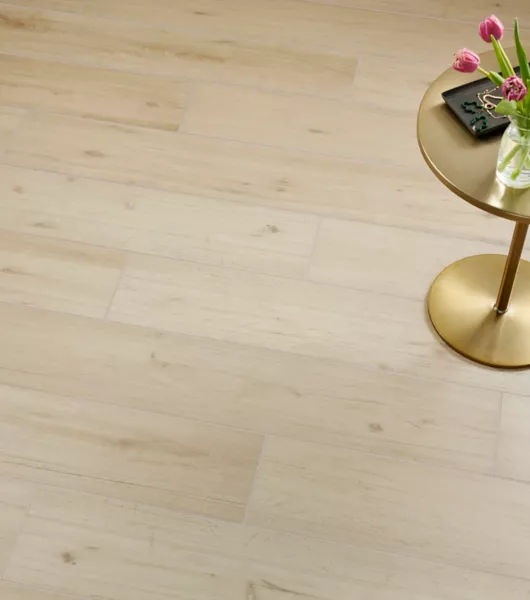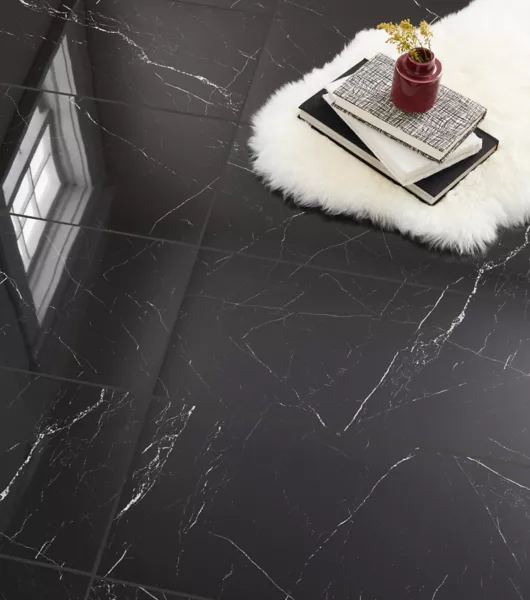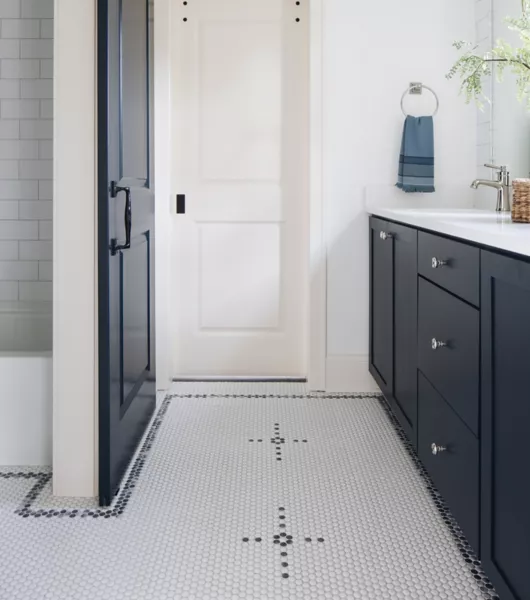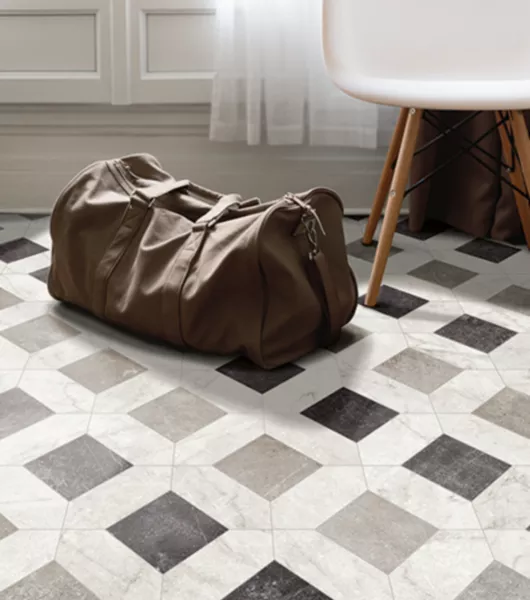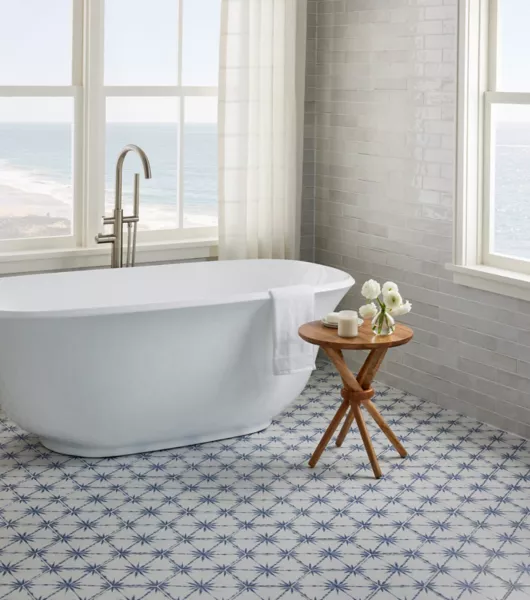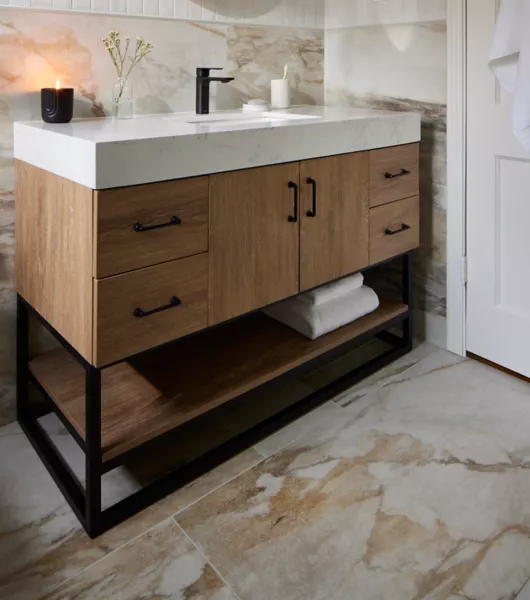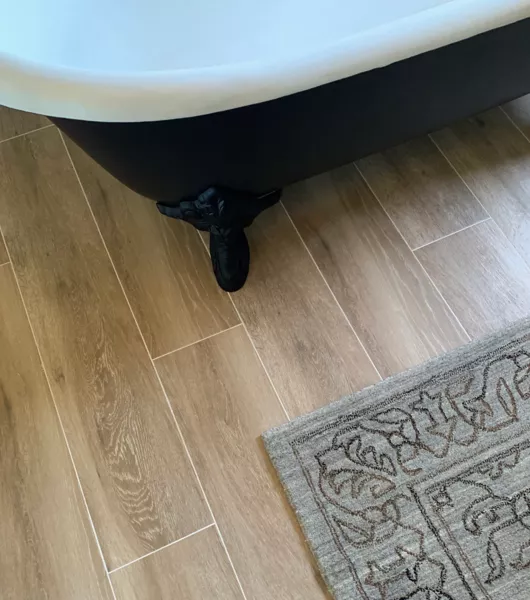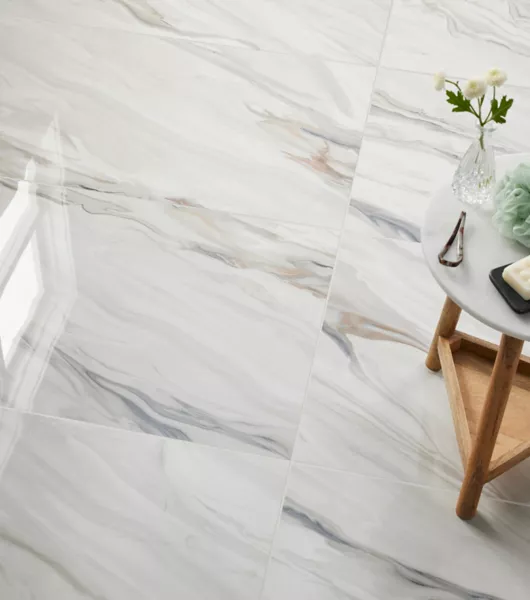Porcelain Floor Tile
Porcelain tiles are very durable and long lasting, creating beauty in your home (or even outside) for years to come. They’re also available in a large variety of colors, shapes, textures and sizes, easily mimicking other materials while retaining easy-to-care-for properties.
Loading component...
Loading component...
Porcelain Floor Tiles – Versatile and Durable
Porcelain is one of the most durable materials—resistant to breaks from drops and damage suffered in high-traffic areas. It is also perfect for wet areas, so you can cover your outdoor patioin porcelain tile and be assured that it will stand up to the elements. From wood-look to stone-look and mosaics to hexagons, porcelain tile can be classic and timeless or trendy and modern. Whichever style you choose, your porcelain floor tiles will stand the test of time.
